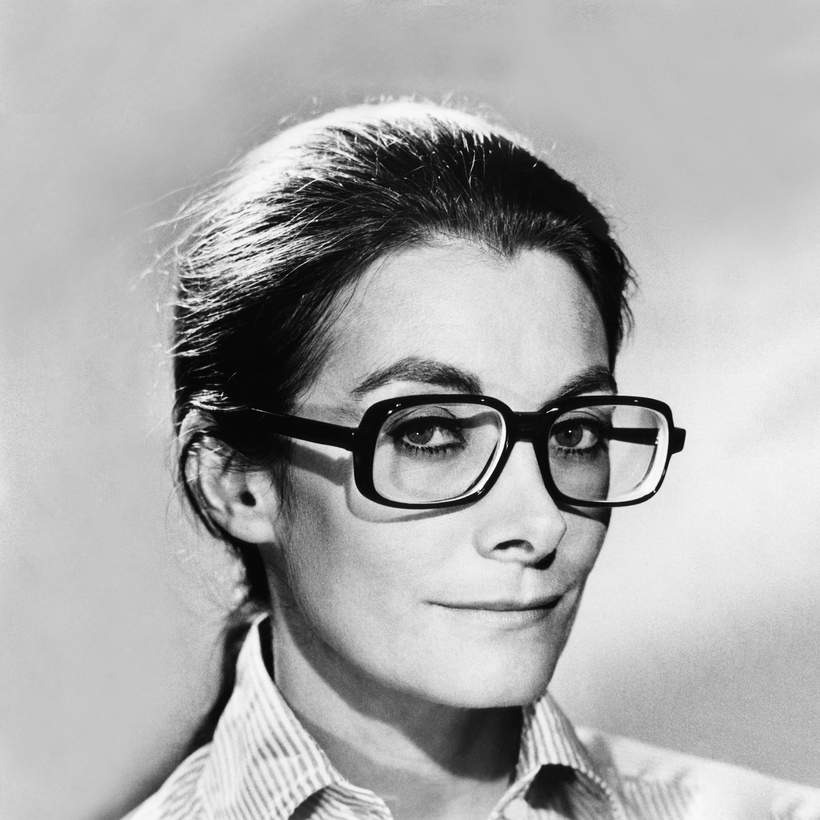I was standing on Fifth Avenue in 1957, waiting for the light to change, when I saw on the other side of the street an English actor, Kenneth Haigh, then the toast of Broadway, starring in Look Back in Anger. Beside him was the prettiest girl I’d ever seen. Wearing glasses.
The light changed and we started to cross the street. The girl was slim and copper-haired. As we passed each other, going in different directions, we looked at each other for an instant. She had green eyes and a retroussé nose, and seemed very good-humored, as though the world was a fascinating place. If I could ever have a girlfriend like that, I thought, at the age of 16, I’d be happy.

Ten years later, I was working in London and was asked to direct an episode of The Informer, a TV thriller, with the talented if drunken Ian Hendry, playing a private eye, and Jean Marsh, his girlfriend. She was the girl from Fifth Avenue. She still wore glasses.
When we were introduced and shook hands, we both felt we’d known each other forever. She said she liked my maroon chukka boots and gave me a punnet of strawberries for my birthday. I was 26 and she was 32.
After the TV series was complete, we met again at a lunch given on a Saturday afternoon. We went for a walk after around Mayfair. It was a sunny day, but the streets were almost empty. Just the two of us, it seemed.
We lived together for 12 years, and our friendship progressed, deepened, and never faltered—nor did our love—even though our lives did sometimes move in different directions, work, separation, and distance being the movers.

Jean was born into a working-class family before World War II in Stoke Newington, then a rough London district. Her father, Harry, worked the night shift as a laborer at Odhams Press. He was a Communist, a vegan, and a voracious reader who wore thick National Health Service eyeglasses. Jean loved him dearly, partly because she knew his intelligence would never be put to proper use because of the straitjacket of the English class system. Jean wore glasses most of her life and always voted Labour. Her mother, Emmeline, nicknamed “Poppy,” had been a barmaid and later a chaperone for theatrical children. She lived to be 102.

Before being evacuated to the country with other children, Jean had survived the Blitz with rubble, bodies, and dust in the street as she went to school. She started working aged seven, as a dancer, to earn extra money for her family.
Her first film was The Tales of Hoffman, co-directed by the great Michael Powell, who she said was always nice to her. She was 15.
She and her best friend, the actress (and now dame) Eileen Atkins, created the very successful Upstairs, Downstairs, about a rich London family living in a grand house with a retinue of servants in the kitchen and attic attending to their every need—like Downton Abbey, but 40 years before. Jean won an Emmy in 1975, Outstanding Lead Actress in a Drama Series, for playing the head maid, Rose Buck.

She also wrote five novels, and was appointed Officer of the Order of the British Empire for her services to drama by Queen Elizabeth in a very grand ceremony at Buckingham Palace. A long way from Stoke Newington.
As things changed with time and circumstance, we still liked to be together, often going on holidays, and though living in different places, we spoke on the phone almost every day for 40 years. I think we missed each other.
Jean loved to cook—and to drink a glass of good red wine or two. Everywhere she lived, small or larger, was cheerful, bright, and welcoming. Once she became the first person in her family to own property, she bought a house for her mother and father and one for her sister. She was a whiz at crossword puzzles.

Things could make her sad and she would cry, as when she told me on the phone that her friend, the fine actor Gordon Jackson, who played Hudson the butler in Upstairs, Downstairs, had died that afternoon in the hospital. As someone of instinctive grace, she despised snobbery and arrogance. She was brave when called upon to be.
Many men had crushes on her, perhaps even the somewhat older Graham Greene, one of the great writers of the 20th century. After a screening of Doctor Fischer of Geneva, the TV adaptation of his book that I’d directed, a few of us had dinner. He called the next morning to thank me, and asked, “Um, does Miss Marsh have a regular companion?”
Always slim, Jean loved to walk near her house in Oxfordshire—on paths, up hills, along the river. Guerlain Mitsouko was her favorite perfume. Street traders in Soho would treat her as one of their own, offering to “take care of things, Jean,” if anyone ever threatened her. She loved classical music and opera. And rock ’n’ roll.

The women who looked after her in these last years loved her as she did them. She was always empathetic to those facing adversity, as she often had. Very intelligent, she thought things through herself, never relying on received opinion.
And she was very, very funny.
And I loved her.
Jean Marsh was born in Stoke Newington, London, in 1934. She died in Chelsea on April 13, aged 90
Michael Lindsay-Hogg is the director of the original Brideshead Revisited TV series as well as the Rolling Stones Rock and Roll Circus concert film and the Beatles documentary Let It Be


